When I heard that the British countryside is now racist, I thought this must be one of those stories the right-wing press has stretched to get some clicks. I thought, things are not so bad that some people out there believe that country walks, bluebells and oak trees are racist. That woodland is just waiting for a black person to walk by and call them something nasty.
I did a quick google search and sure enough, the British countryside is racist. We are told, “A coalition of conservation and environment groups has claimed the UK’s countryside is a racist colonial white space in a submission to the House of Commons.
Wildlife and Countryside Link, a charity umbrella group whose members include the RSPCA, WWF and National Trust, made the claim in evidence provided to parliament on racism and its influence on the natural world. MPs heard how racist colonial legacies has influenced British wildlife spaces, dominated by white people.”
https://tfn.scot/news/britains-countryside-a-racist-colonial-white-space-unwelcoming-to-minorities
A black person writing in the Guardian tells us, “The countryside is a territorial place, full of imperial nostalgia, that harks back to a to a time when black people were not welcome. The very concept of Britishness is wrapped up in images of the fields of England – and I do not represent that concept. Yet, as part of a dual-heritage family leaving an overpriced city to set up life beyond the smoke, I am now a representation of the countryside’s future.” https://www.theguardian.com/commentisfree/2020/oct/20/black-woman-british-countryside-london-rural-village-stereotypes
All of this reminds me of that very funny scene in Father Ted, where someone accuses Ted of being racist now. “I hear you are a racist now Father.” I can just see the nincompoops in the Wildlife and Countryside Link shouting at a 250 year old oak tree “I hear you are a racist now.” Just what have the trees and in indeed the British countryside done to deserve The Treatment?
Some readers will know that I lived in the UK for twenty years and then moved back to Ireland in the summer. Although most of my time was spent in London, I had the absolute privilege in living outside Bromley, formerly Kent in the last five years of my UK life. The children were older so most of my happiest memories are now dominated by the Kent countryside, rightly called the Garden of England. Turns out I was a racist for always enjoying these places.
(Annabelle with Louis, one of last trips to Emmetts Garden)
One my absolute favourites is a small little place called Emmetts Garden. I distinctly remember my first trip there. It was a Sunday and I hovered the children off the sofa, piled them into the car, drove about 30 minutes, itself a beautiful drive, went through the main part of the property into the woodland and even though it was wet and cold, I declared to the children ‘this is the most beautiful place I have ever been to.’
We went in the summer, we went in the Autumn, we went in deepest darkest Winter, and we went for the most beautiful display of blue bells in the Spring. In fact, I remember going with my son a day or two after Christmas and we were the only people there. We were the hardcore. Myself, Matthew and the dog Louis were alone in the coffee shop. It was raining but I didn’t care. It was still a beautiful and calming experience.
We have been to nearby Chartwell, Ightham Mote, the Knole and Standen House. I brought other people’s children as well as my own to Chartwell where we had a picnic in the boot of the car. I remember being about 8 months pregnant and going on a very long walk in Scotney castle (have to get on the M25 for that) thinking there is an outside chance I could go into labour right here and right now.
(Deer in the Knole, Sevenoaks.)
All were magical adventures apart form the time Louis would not come back to us for at least an hour. I had to place my expensive Northface jacket over some barbed wire in an attempt to get him back. That was the low point, but it was not because Emmetts Garden was racist.
(Emma in the rose garden of Emmetts Garden)
(Also Emmetts Garden, we never let the rain stop us).
The mental and physical health benefits of going on long and especially woodland walks are well know and I certainly felt them. What I miss the most about London are the green spaces. People often think Ireland is green and it is, but it lacks woodland since farming dominates and the British stripped much of the trees down. But that should not stop councils from planting and encouraging green spaces and woodland now, which they don’t.
It is not just Kent that has beautiful countryside. I lived near Beckenham place park which has very famous ancient woodland. A five minute drive and I could walk in a space called Sparrow’s Den where we once lost the children but is also a beautiful woodland walk. There was even a little wood near us, Pickhurst green that I used to bring baby John to.
(A walk to Pickhurst with baby John.)
It is easy to laugh off this latest attack of racism, but a serious point lies benefit. Others have pointed out that is part of Project Year Zero, an attempt to cut the British public (and Irish immigrants) from their heritage that is the British countryside.
I do not believe it is an honest attempt to examine links to slavery for instance, and many National Trust houses would have such links. It is a sinister project to make people feel guilty about their past and therefore trust the elites who want to tear it down and build some hideous utopia in the future.
(Grandad at Chartwell, Churchill’s country retreat.)
This is done in the US, where absolutely everything is deemed racist, and it has been executed with spectacular success in Ireland with the demonisation of the Catholic Church. We are to forget that the church was critical in shaping a post-colonial Ireland and was the welfare state here.
My final objection to this attack however is the utter joylessness of it and that it could indeed put ethnic minorities off the simple pleasures of a walk or a day trip to one of the many wonderful houses and gardens run by the National Trust. There is something so petty, so mean, and so awful in condemning the beauty of nature and the wonder of birdsong.
(The bluebell walk at Emmetts Garden. All most worth flying in for.)
When you walk through ancient woodland, you understand what a small player you are in the scheme of things and that your problems may indeed wait for another day. You appreciate that the woodland has been there for hundreds of years and will continue to be there long after you are gone. I find this oddly comforting and humbling.
(Scotney castle, racist allegedly.)
So if you do one thing this spring I encourage you to join the National Trust (despite their woke agenda) get in the car with some family or friends and get walking. Bring a picnic. Bring a dog. Bring yourself. The British countryside is not racist, it is one of the wonders of the British Isles.
(The children at Ightham Mote)

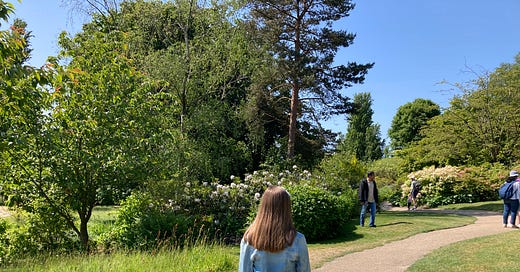



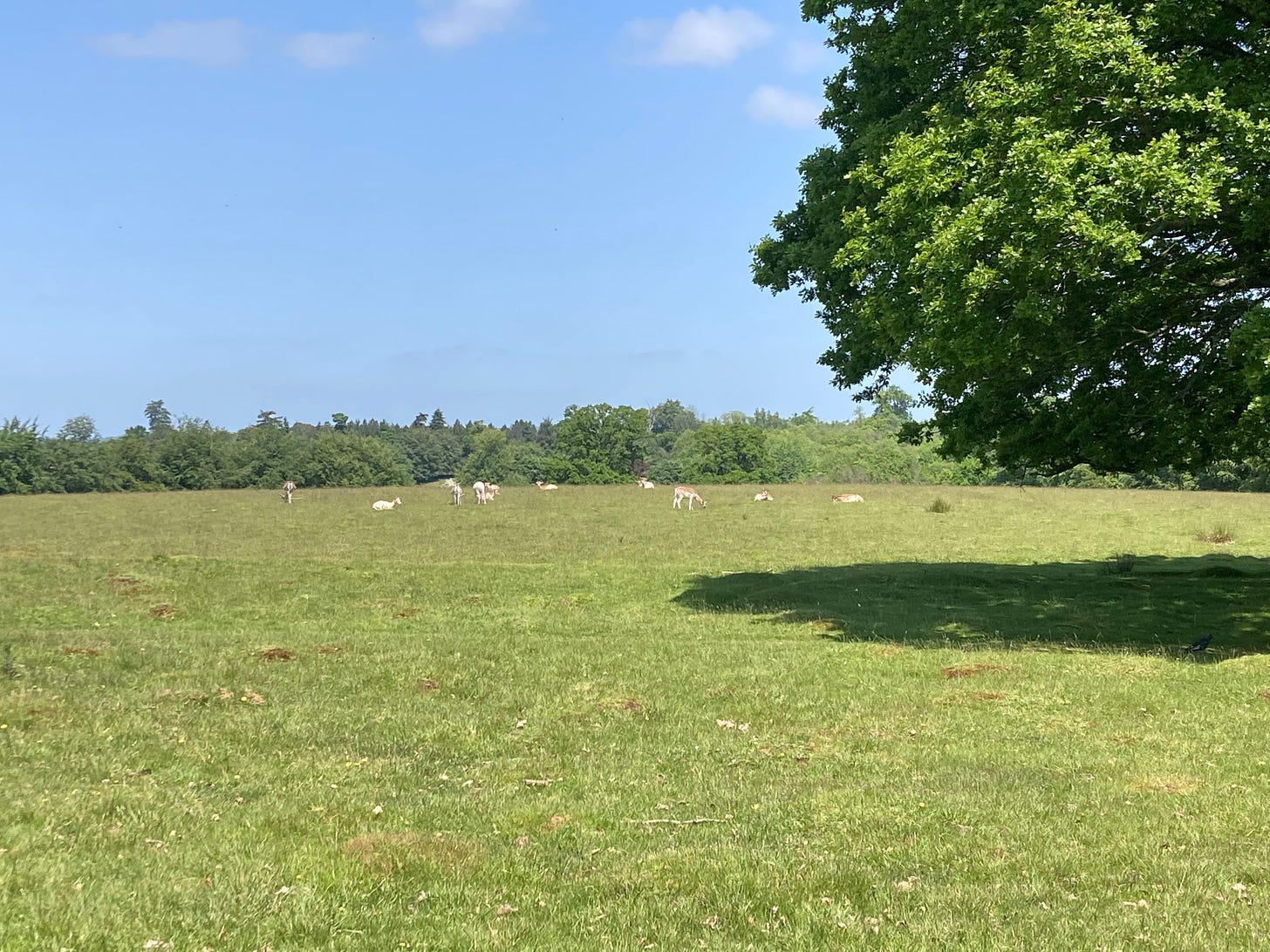
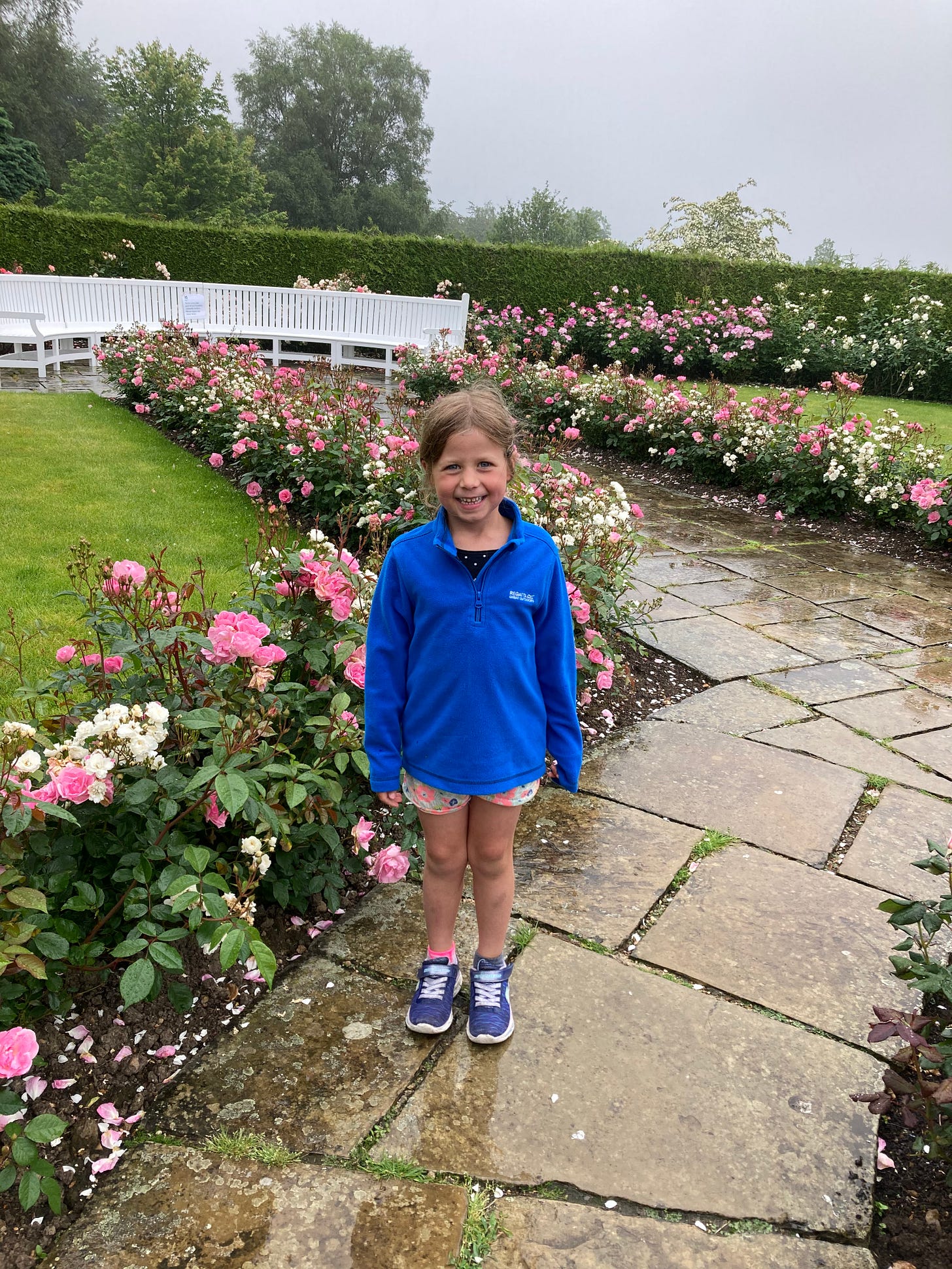
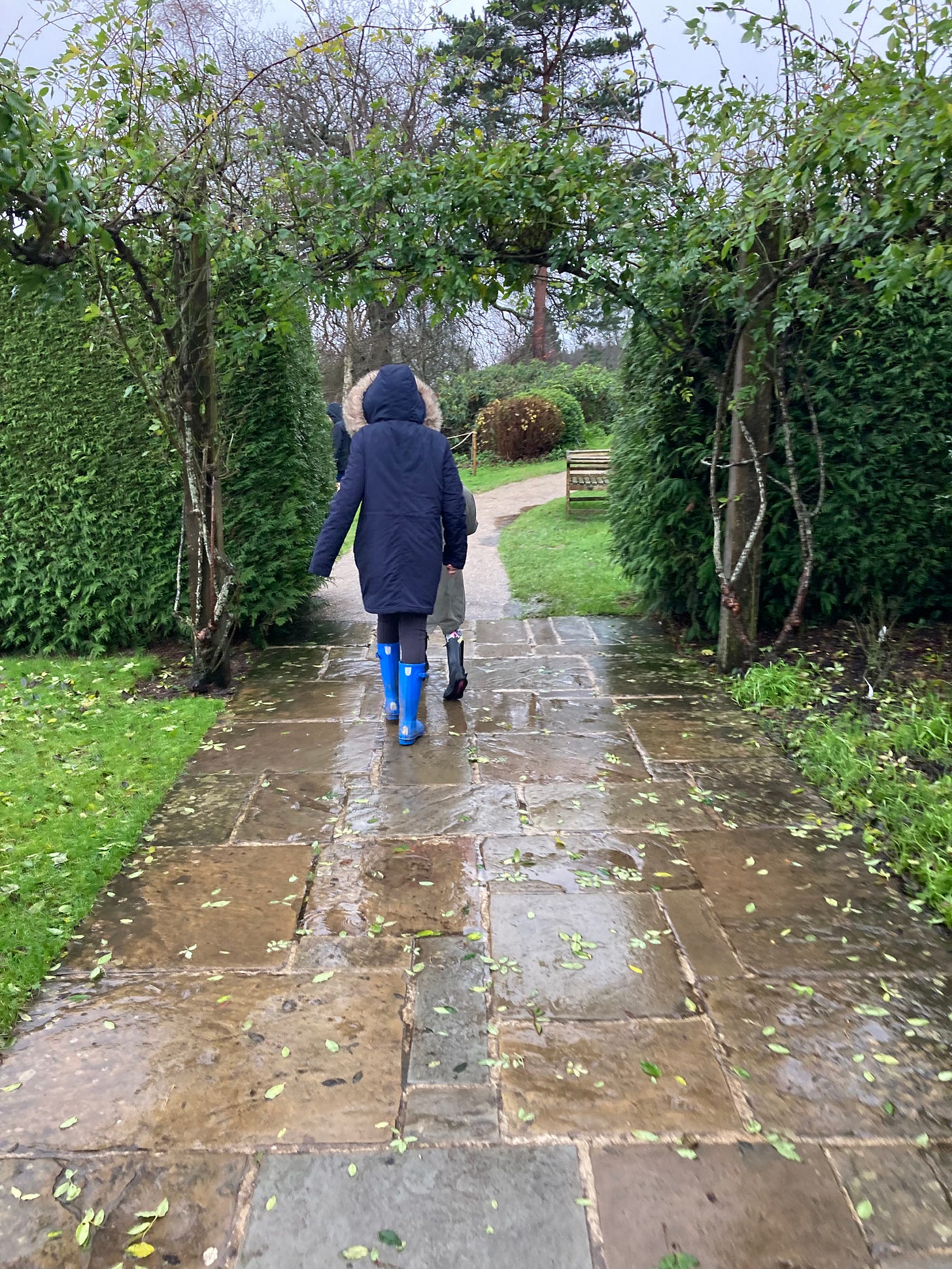
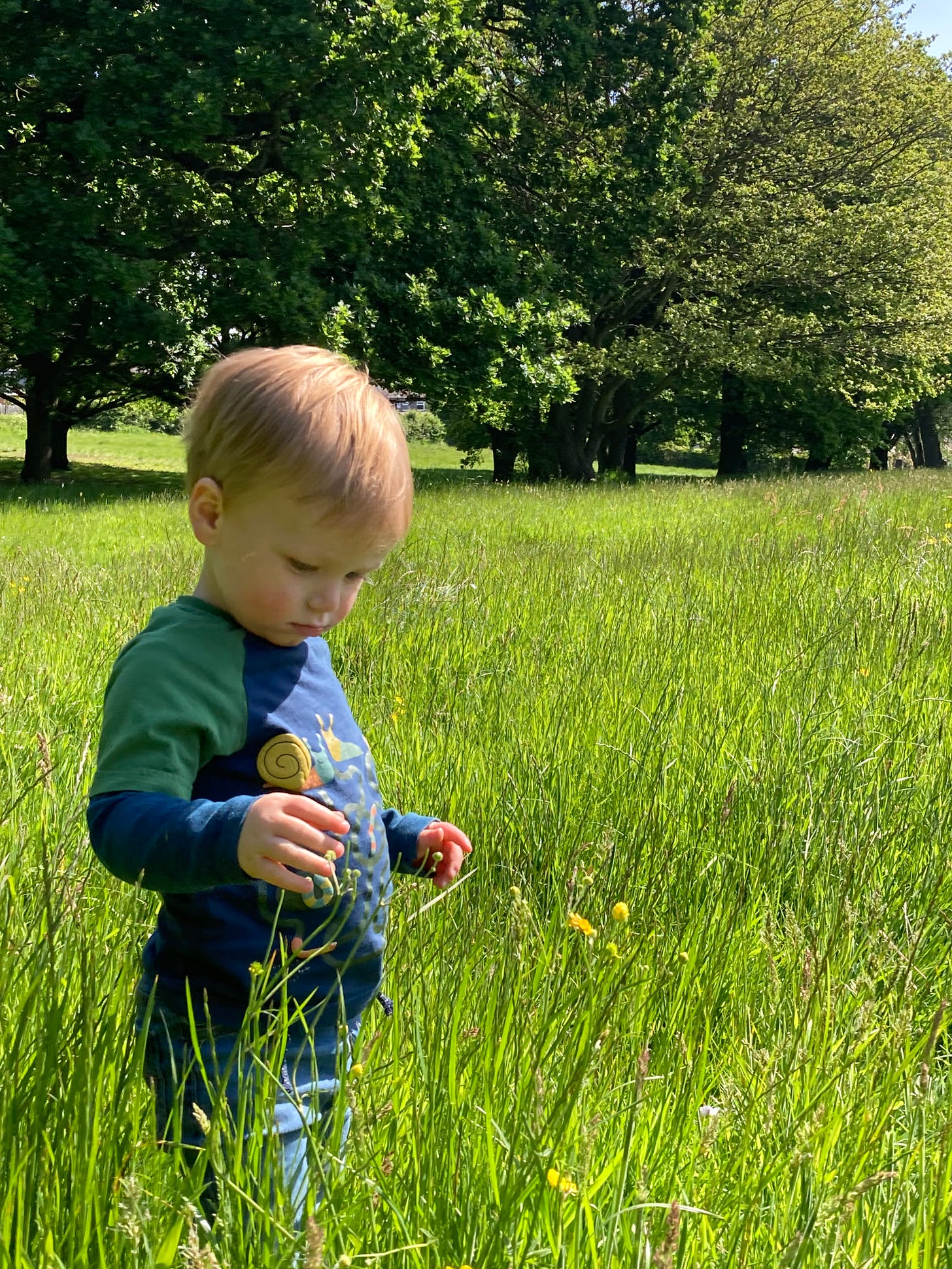

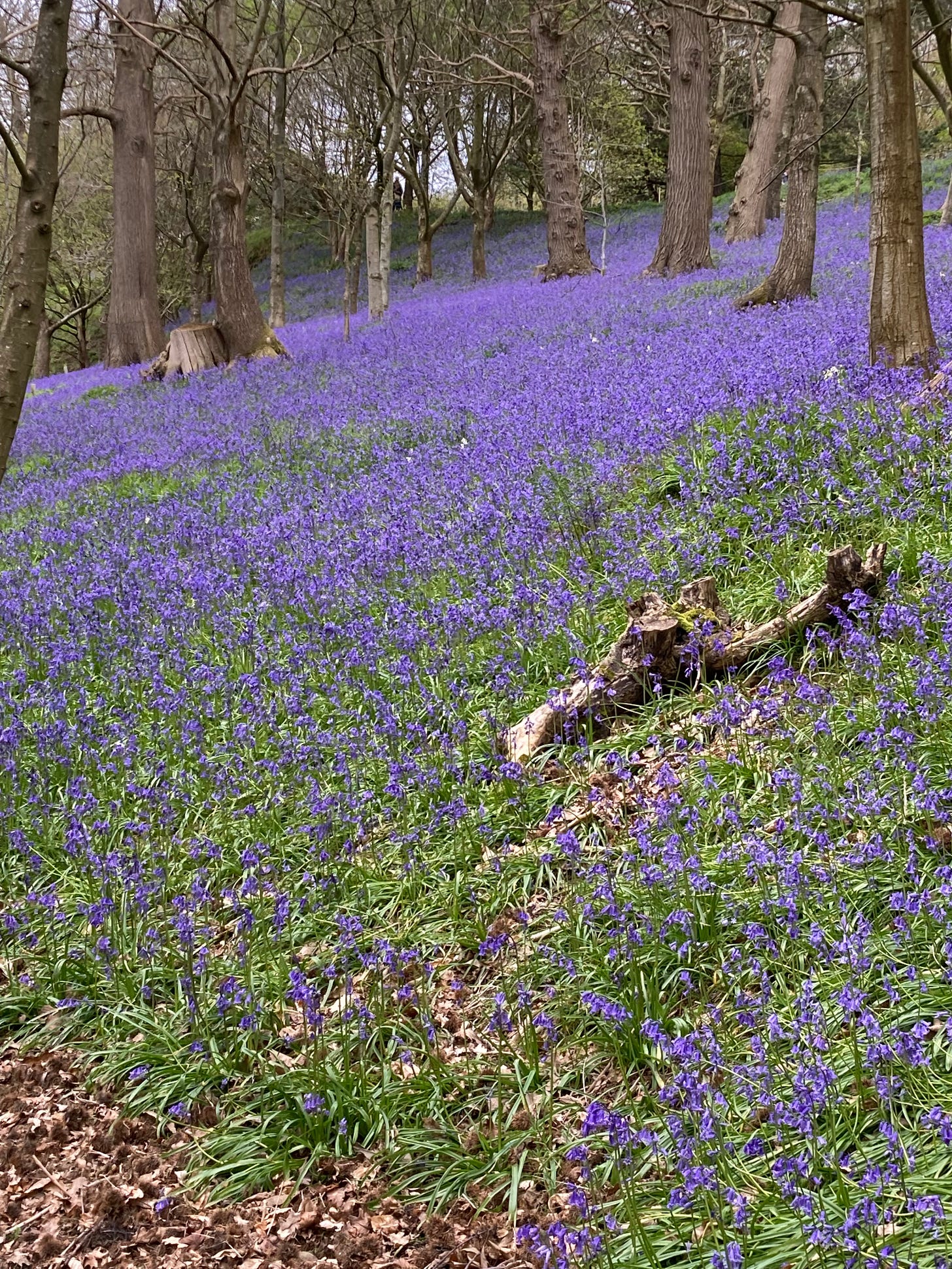
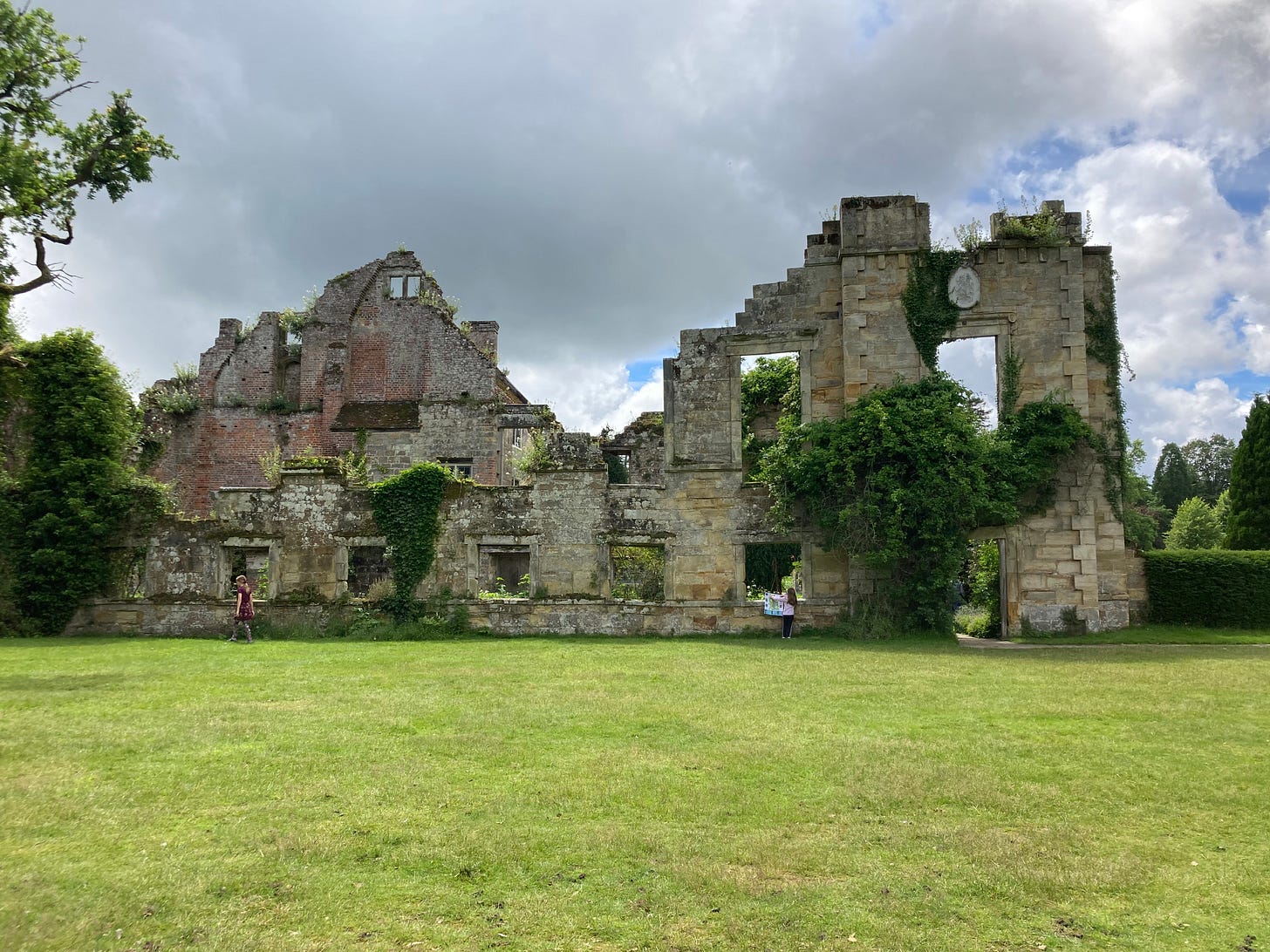

I wonder how soon the producers of the series "All Creatures Great and Small" apologize for their racist use of the dale landscape? (I hope they don't, but people just can't seem to not join in the virtue-signal choir)
And, I would add - in addition to the points you make - that severing the ties between a people and their land is also an attempt to further eliminate faith in a Creator. It's hard not to contemplate the divine when standing in awe of G-d's grandeur writ large in nature.